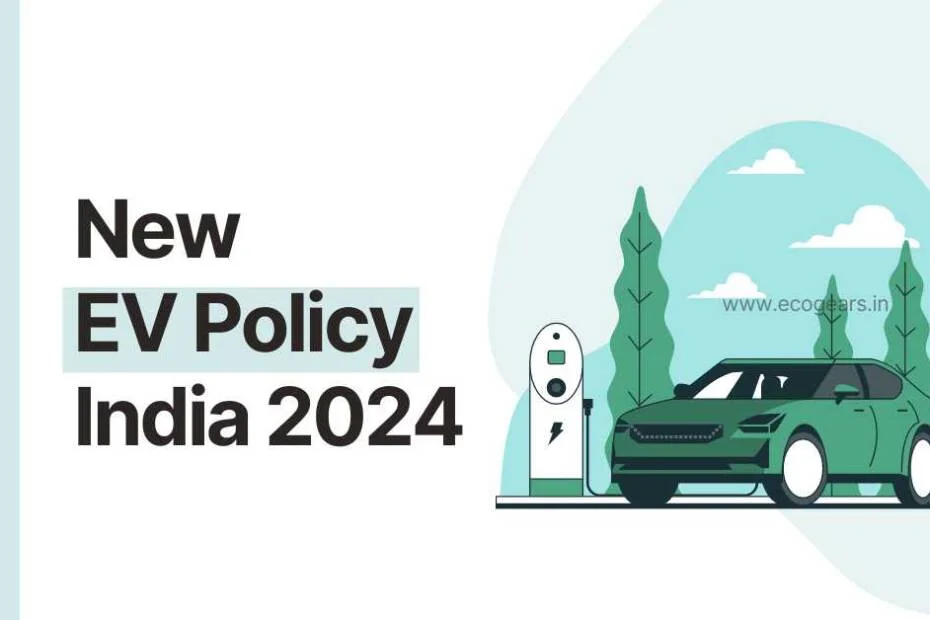India’s Electric Vehicle (EV) market growth is on an exponential growth trajectory aided by friendly government policies and acceptance from Indian consumers. Furthermore, the new EV policy 2024 acts as a catalyst for the industry, with a vision to transform India into an EV manufacturing powerhouse under “ Make in India” and a global leader in the EV race.
According to the new EV policy, the import duty is reduced to 15% at or below $35,000 and the import capping is set to 8000 EVs per year. Meanwhile, the new EV import policy also aims to promote local EV manufacturing and job creation in India. This policy incentivizes companies that set up EV manufacturing plants in India by offering tax breaks on EV imports. Here’s how the new EV policy is likely to make India an EV manufacturing hub:
Domestic manufacturing
To avail of the benefits offered under the new EV import policy 2024, companies must set up manufacturing facilities within 3 years by investing a minimum of Rs 41,150 crore (USD 500 Million). This is aimed at making India an EV manufacturing hub in line with the Make in India campaign of the central government.
This high minimum investment into the Indian EV sector ensures a long-term commitment from manufacturers that is likely to result in high-quality production facilities and job opportunities.
Domestic Value Addition
The new EV Policy 2024 is aimed at promoting domestic innovation. The policy mandates manufacturers to achieve a domestic value addition of 25% within the first year and up to 50% within 5 years from the date approved by the Ministry of Heavy Industries.
It ensures that the cutting-edge technology is developed and manufactured in India. Companies will be provided with a Domestic Value Addition (DVA) certificate by the Automotive Research Association of India (ARAI) upon completion of the targets to avail the subsidies. This is likely to create 2.5 million new jobs for the Indian EV sector.
Quality and Affordability
The new EV Policy 2024 ensures Indian consumers a smooth shift from traditional ICE-powered vehicles to modern sustainable electric vehicles. The Ministry has set out guidelines to maintain the quality of EVs while manufacturing them locally to avail benefits.
This will offer Indian consumers a wide range of buying options under an affordable price segment. Meanwhile, the import limit of 8,000 electric cars per year for the first five years allows continued access to global options while domestic manufacturing is set up properly.
Collaborative landscape
Domestic manufacturing under this policy will create a collaborative landscape in the EV market of India. This will unlock collaborative opportunities for established car manufacturers with Indian startups. Collaboration of global manufacturers’ expertise with ideas of Indian EV startups will create several new technologically advanced EVs for Indian conditions under a mass market segment.
This powerful combination can accelerate the development of the Indian EV ecosystem, putting India years ahead in the revolutionary process of EV adoption.
New EV Policy 2024: The Road Ahead

The new EV policy of India in 2024 is a game-changer for India’s EV sector. It’s a strategic move by the Ministry of Heavy Industries with the potential to make India a manufacturing hub for electric vehicles. By promoting indigenous EV manufacturing, creating jobs, and by ensuring quality and affordability, India is on its way to becoming a global leader in the electric vehicle market by 2030. Here are some key highlights of the new EV policy 2024:
- Import duty reduced to 15% up to $35,000.
- Imports are capped at 8,000 units per year.
- Minimum investment of $500 Million.
- Set up manufacturing units within 3 years.
- Minimum Domestic Value Addition (DVA) of 25%
- Duty waived capped at Rs. 6484 Cr under PLI.
FAQs
The new EV policy offers tax breaks on imported EVs for companies willing to set up EV manufacturing plants in India within 3 years of the date of approval.
The new EV policy requires a minimum investment of INR 4,150 crore to establish electric car manufacturing units, which might be a challenge for small-scale manufacturers in India. Also, achieving 50% DVA within 5 years will require additional R&D investments.
The new EV policy will bring in millions of investments and over 2.5 million job opportunities. Additionally, the policy aims to promote domestic manufacturing and reduce reliance on imported EV components, thereby giving a boost to the overall economy.
